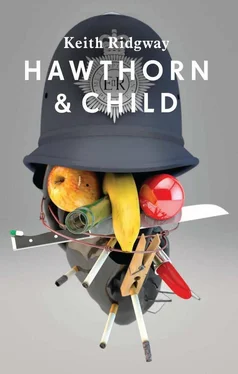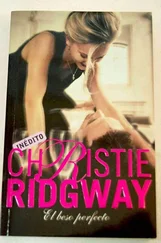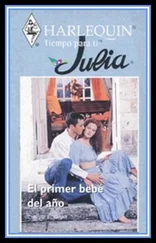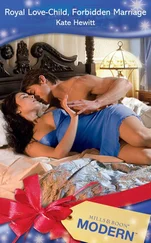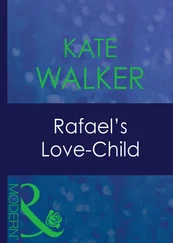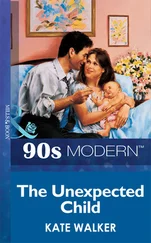Hawthorn told him sometimes about other cases he was working on. A couple of murders. A robbery. Vague, no details. Sometimes Hawthorn asked him if he knew certain people. He named names. Most of them were unfamiliar. Once or twice there was one he thought he knew, but he said nothing.
— How come you know no one?
— I’m not …
— What?
He brushed the skin of his chest.
— I’m not a crook. I don’t hang out with crooks.
Hawthorn said nothing for a while. He was smiling.
— What are you then?
— I just do the driving thing.
— And the pickpocketing thing. And the hotel thing.
— I rob, sometimes. Yeah. But I’m not a crook. I don’t like crooks. I don’t like all that. I stay away from it. I avoid those people.
— How are you going to get ahead?
— I don’t want to get ahead.
Mishazzo asked him one day:
— Why are you looking in the mirror?
— I am?
— Are we being followed?
— No. I don’t think so.
— So why?
— I didn’t know I was looking in the mirror.
— You’re looking in the mirror all the time.
— Sorry.
— That’s OK. You know what to do if we’re being followed?
— I tell you. I drive normally. I describe the car.
— Yes. If it happens, then we drive back to Tottenham. Back to the office. Nice and slow. Nice and normal. It will be police.
He nodded.
Mishazzo swayed his shoulders so that his head travelled from one edge of the mirror to the other.
— If it isn’t police then what do you do?
Price had said that it would always be police. That no one else is that stupid.
— I don’t know.
Mishazzo laughed.
— Then we call the fucking police my friend. We call 999 and you put your fucking foot down.
One day he counted up all the things he’d written. And he counted up all the things she had written. He had written more. More sentences, entries, whatever they were. He wasn’t sure about words. Sometimes she wrote a whole page. Or more. Sometimes she drew little doodles, or pictures. Faces and flowers and a house with windows and a fence in the front and a path to the door, and the sun overhead. Her drawings were terrible, like an infant’s. But he stared at them for ages. Once he started to draw something. A face, he thought. But it was a mess from the first mark he made and he scribbled it out.
He didn’t tell Hawthorn about the book.
He thought that if she died, he would keep it. But he would destroy it before he died, and he would let no one else look at it. No one else in the world, ever, would read it. It would be something that had happened only for them, and when they were gone it would be something that had never happened.
That made him sad to the point of crying, almost, and he felt like an idiot.
One morning there was a man in the car with Mishazzo. This was not unusual. But this time Mishazzo did not want to go to a café. He wanted to be driven around.
— Drive east. Go toward the Olympics. I need to see what it looks like now. We can talk as we drive.
He could sense a pause as the other man gave Mishazzo a look.
— It’s OK, Mishazzo said quietly. It’s good.
They talked about cars. They talked about money. They talked about expanding something that was working well. The man mentioned a name. Gull. Gull, he said, wanted no splash-back. They talked about money again. Mishazzo produced a little calculator from his briefcase and they added numbers. Small numbers. 86 plus 134, 17 divided by 5. The other man wrote down some of the numbers on a scrap of paper on his knee. They seemed then to be talking about hurting someone, but then they seemed to be talking simply about collecting someone. Or something. Then they were laughing about everything.
He drove around the Olympic fences, past the hoardings — the long colourful boards sometimes marked by graffiti. They couldn’t really see anything. Mishazzo got bored and told him to turn around. In the back seat they were talking about music. Mishazzo wanted a CD played, then a different one, a specific song.
He braked sharply. He’d been fiddling with the CD player. There was a short silence. Then he apologized.
— My fault, said Mishazzo. I employ you to drive. Not to be my fucking DJ.
Mishazzo and the other man started to sing in the back seat. They sang songs they both knew in raucous, untuned voices and laughed, and he found himself laughing as well, and singing sometimes too when he knew the words or the tune.
The man handed him a roll of money when he got out of the car. It was nearly one hundred pounds in grubby fives and tens that smelled of his father’s kitchen, and sweat, and ropes. Mishazzo told him to drive back to the office. That was it for the day.
— Now you see, he said. Now you see how dull my business is. But it pays well. And it makes you friends.
They lay next to each other in the bed and touched each other and laid their faces one against the other and when they were tired of talking they fucked and when they were tired of fucking they talked, and many different afternoons became one afternoon that persisted in his mind for the rest of his life and he never knew what to make of it, then or after.
— What does Mishazzo do?
— What?
— Mishazzo. Why are you interested in him? What does he do?
— You don’t know?
— I know some.
Hawthorn didn’t say anything.
— I know he does some buying and selling. Stolen cars.
Hawthorn nodded.
— I know he owns a couple of cafés.
— He does.
— They’re just cafés.
— Yeah. They are.
— So what else does he do?
Hawthorn hummed and rubbed his nose.
— He owns two launderettes.
— I didn’t know that.
— Yeah. The launderettes, the cafés. He owns that building in Tottenham.
— The office? I thought he rented.
— No. He’s the landlord. Or maybe his daughter is.
— He has a daughter?
— He has two daughters. Their mother is dead.
— So what does he do?
— He provides. Largely speaking, that’s what he does. He’s a businessman. He talks. He makes deals. He negotiates. He opens up conversations with people running various … rackets, all over North London. He offers them things they might need. Resources. And he introduces people to other people. Broker. Provider. Facilitator.
He nodded. Mishazzo was a businessman. A talker. Like his father.
— It’s tangled.
He wanted to ask Hawthorn how dangerous Mishazzo was. Whether he hurt people. Whether he got Price to hurt people. Whether that was part of business or whether it was all exaggerated.
— What laws has he broken then?
— All of them.
— He doesn’t kill people.
Hawthorn looked at him suddenly, his eyes a bit wide.
— He doesn’t kill people, he agreed.
— He doesn’t?
— No.
They said no more about it. He didn’t believe him.
Child looked at them. He looked at them and seemed to shut his eyes for a tiny moment. He looked from one to the other and seemed to pause, and shut his eyes. For a second. Two seconds. And then he muttered Oh for fuck’s sake , and he went to the counter to pay for their coffees and Hawthorn’s slice of cake and the bottle of water.
He never saw Child again.
Mishazzo stared at him. In the mirror. All he could see was the middle of Mishazzo’s face. His eyes. Half of his forehead. His nose. His upper lip. Mishazzo said nothing. He didn’t want music. They were driving to the café in Holloway. He looked sad. Depressed. As if he wanted to confide something.
— Your girl is good?
— Yes sir.
— What is her name?
— Mary, he lied.
Читать дальше
